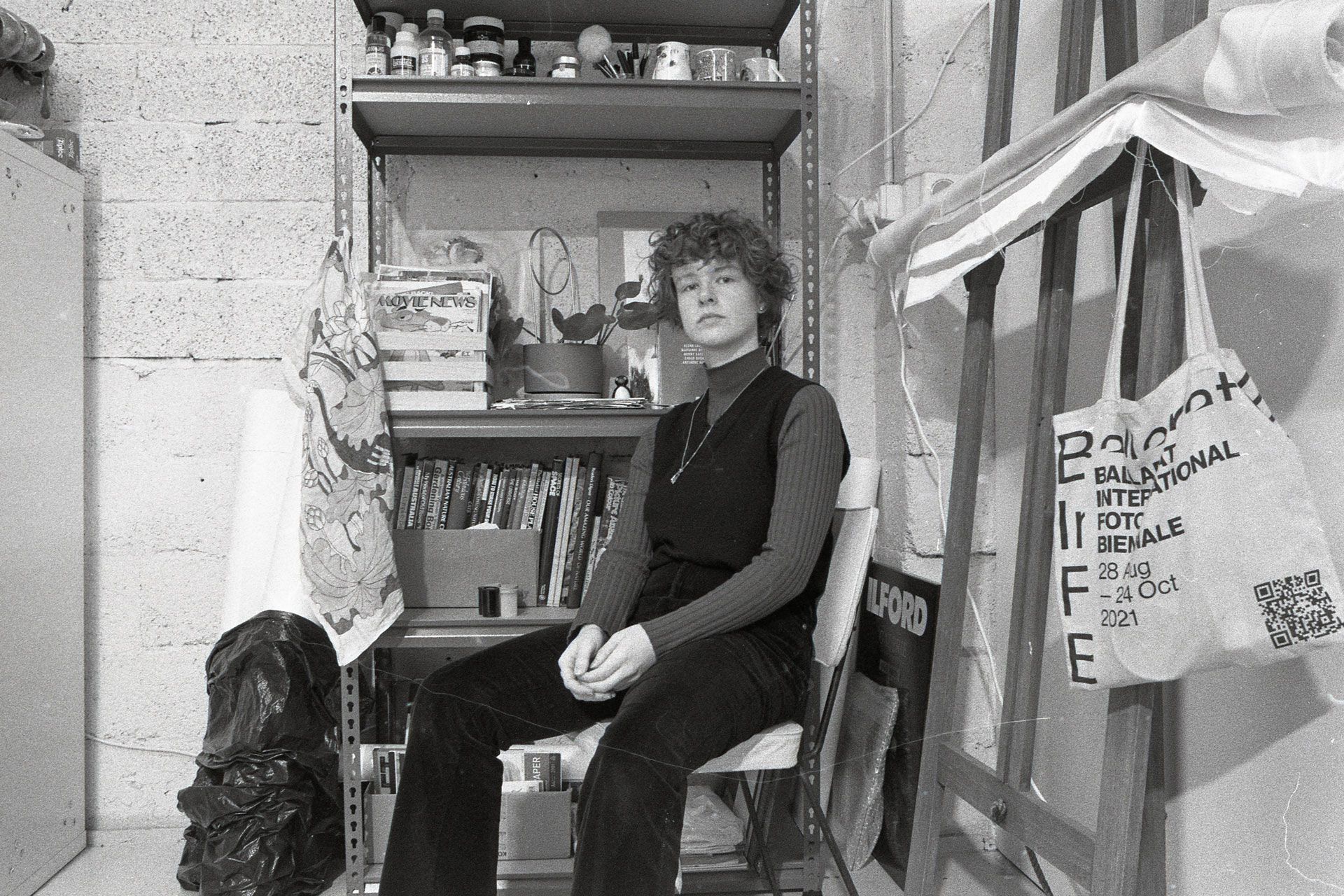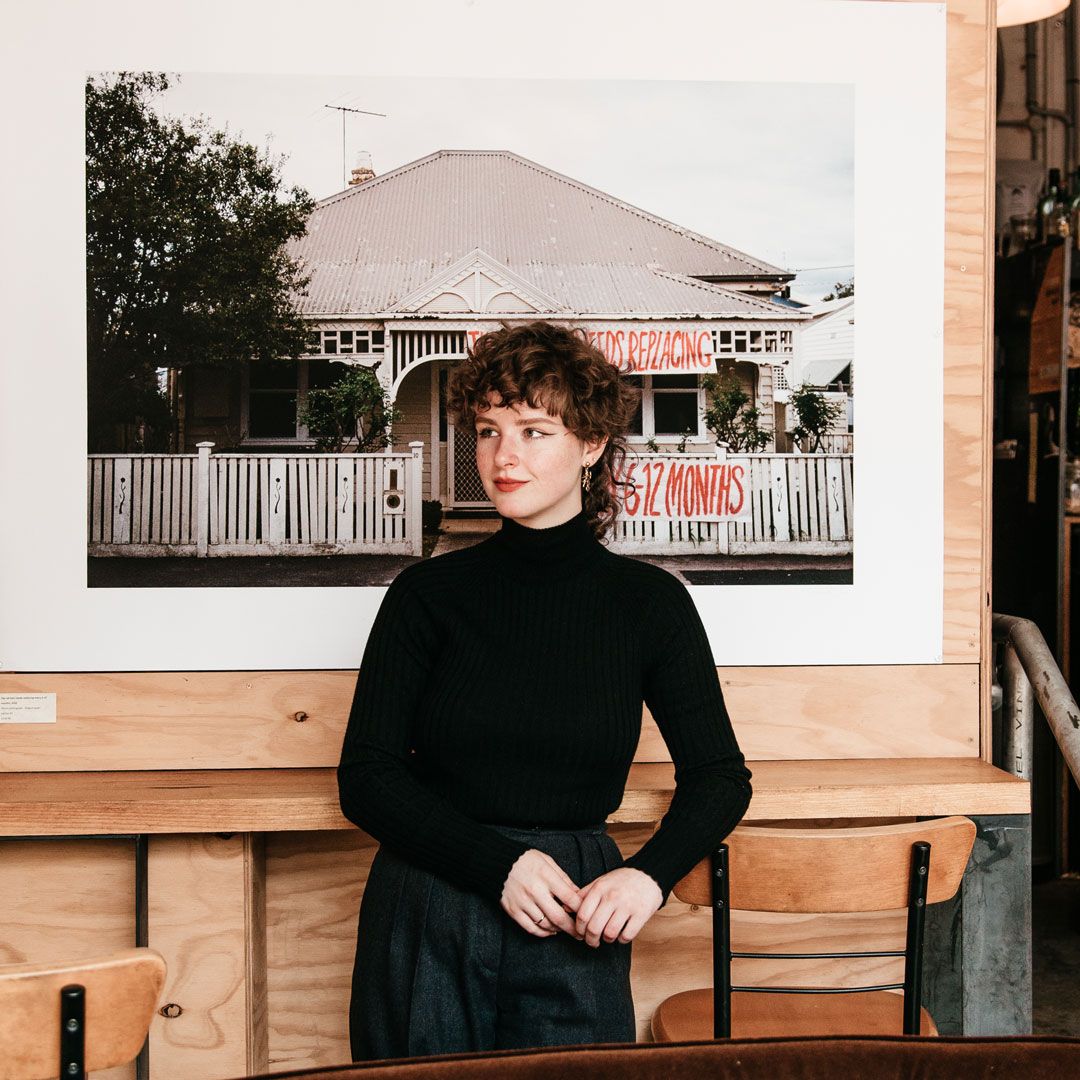I describe myself as an artist and arts worker, but I haven’t always felt confident in claiming this dual role.
Having fled an intimidating first semester in an undergraduate Fine Art course, as a shy 18 year old I enrolled in an Art History major so I might attempt to Know and Understand1 the art world, how it works, and how I might fit in. After graduating, my first professional role was Media and Communications Coordinator with Geelong-based organisation Platform Arts. Nothing could have given me better insight into how the contemporary art world functions than this job—but at some point, I quietly accepted that perhaps I wasn’t meant to make art. I certainly didn’t think of myself as a real artist until a few years later, but still wondered if the division of my time between art and work meant that I would never be ‘successful’.
When I was offered to join Next Wave’s Kickstart program, it crossed my mind that perhaps this would be a turning point in my life: would it now be possible for me to be a full-time artist? I dreamed of describing myself this way, fantasised about being eternally free from the 9–5 schedule and labouring over a computer screen.
Unfortunately, I think many of us can fall into the trap of thinking that our jobs are just temporary (or even shameful) until we manage to leave them and become full-time artists.
One of the goals of the Kickstart program is to help artists develop a sustainable practice, but it only recently dawned on me that for most, ‘sustainable’ does not necessarily mean a full-time practice that delivers a full time-equivalent income. And I think this is (or will be) true for many of the Kickstart artists and Artistic Directors.
Next Wave’s current Kickstart artists and Artistic Directors gathered together for the first time at All School LAB in May. While getting to know everyone, it was apparent that we all had jobs, care or family responsibilities, and/or chronic illnesses. I was deeply moved by the expressions of trust and vulnerability, and felt reassured in my own struggles: art cannot and does not wait for everything else in our lives to stop.
We are full-time artists whose time is paradoxically split between employment, art-work, and all the other types of unpaid labour under the sun.
Although conflicts arise due to the conditions of arts funding and the cost of living, art and (other) labour have a symbiotic relationship. Working in contemporary, experimental or community arts can also take an emotional toll, as the subject matter many artists deal with is heavy. For me, it could never be sustainable to do this full-time.
'Artist’ can be a complementary role in many spaces; the title itself implies a different way of thinking and being. We are not workers in retail, hospitality, customer service, healthcare, finance, systems, education or transport in spite of being artists, we are also in those roles because we are artists and we need to be part of the world.
Why do we need to be part of the world? The reality is that so few artists will have the privilege of devoting all of their labour to art-making. Even some very successful artists have to do their own administration, produce their own projects, apply for grants, teach their medium, run workshops. But I want to see a world where artists are collaborating, visible and celebrated across all institutions. Occupying multiple roles and identities in both the arts ecology and in the wider community can create deeper interpersonal bonds and multiply your experiences, insight and networks. Without this integration we risk social or economic isolation, which makes artists more vulnerable to the pressures of capitalism (which is inherently against process-driven art).
What programs like Next Wave’s Kickstart and Platform LAB can offer artists is support and accountability for developing a project, in-kind venue use, marketing support, social currency and clout in the Melbourne arts ‘scene’—and cash! All of this allows artists to carve out space in their lives to hone their craft and offer something new and valuable to anyone who’s willing to ride our train of thought.
I think that without more opportunities like this, we risk seeing a generation of artists quit due to burnout. Flexible, funded, long-term residencies can help to maintain the symbiotic relationship between art-making and other forms of labour, by honouring the time and energy it takes to juggle our multiple roles throughout the creative process.
To paraphrase advice from artist James Nguyen, who spoke at a recent Kickstart workshop: when making art, we have to think beyond art—because in order to keep making art we need to not be run down by it. That’s not what we want, we want more artists in the world.
The author acknowledges that an artist’s role and social responsibilities can widely vary according to circumstances, and makes no exclusion or judgement on those who define themselves differently. They also acknowledge that they write from their own experience, and neither all arts work, nor artists and arts workers, are the same.
Footnotes
-
This is gently poking fun at the idea that you could fully Know and Understand the art world after a 3-year Eurocentric, undergraduate degree. ↩


